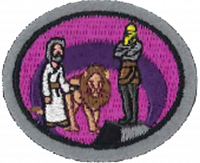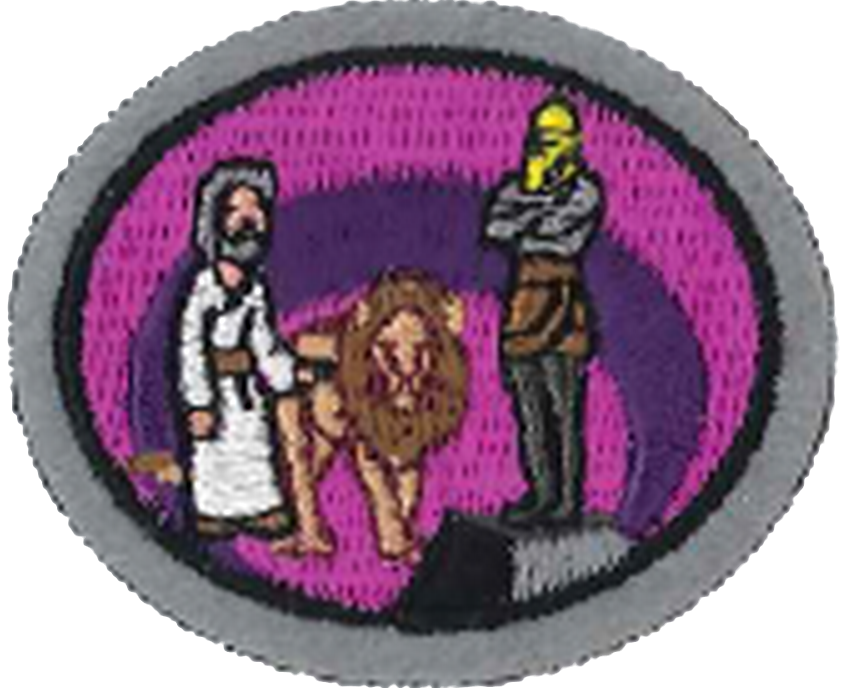Respuestas para la especialidad JA de Daniel y drama
Nivel de destreza
Desconocido
Año
2014
Version
15.02.2026
Autoridad de aprobación
Asociación de Florida
1
Puede encontrar Profetas y Reyes por internet y leer o imprimir estos capítulos en el siguiente enlace: Escritos de EGW - Profetas y Reyes
2
Había 14 generaciones entre cada uno de estos eventos (Mateo 1:17).
3
Fue el primer sitio por Babilonia (2 Reyes 24:1 y 2; Daniel 1:1-4).
4
5
6
They were asked to bow down and worship a golden image erected by Nebuchadnezzar on the plain of Dura. They refused to worship the image and told the king that their God could save them from his punishment and even if He didn't, they could not worship the image. The king, enraged, ordered the furnace made seven times hotter and then had the three Hebrews thrown in. Instead of being consumed by the fire, they were joined by a fourth individual who had the appearance of the Son of God. They were called out of the furnace by the king and found to have no evidence of having been in the fire except that the ropes that bound them had burnt up (Prophets and Kings, chapter 41).
7
He was to be elevated to the first of three presidents in the kingdom (Daniel 6:1-3).
8
Since they couldn't find anything wrong with the way Daniel handled government affairs, they wrote a law requiring that only the king could be worshiped for thirty days and tricked the king into signing it (Daniel 6:5-9).
9
Daniel round himself in a den with a bunch of quiet lions. He survived a night with them and then the king had him lifted out of the den. The princes didn't fair so well. The king then had them and their families rounded up and thrown into the lions' den. Before they leached the bottom, they were torn up and devoured by the lions (Daniel 6:16-24).
10
Daniel doesn't understand the prophecy about the 70 years that Jeremiah talks about. He knows that the problem is in the sins of the people of Israel, so he begins praying for them and for an interpretation of the prophecy. When he finishes praying, Gabriel is standing at his side and tells him that God heard his prayer and sent him (Gabriel) immediately from the throne room to be at Daniel's side when he finished praying. Gabriel then tells him that seventy weeks have been determined for his people and it starts with the decree to build and restore Jerusalem, which will come at the end of the 70 years he had been reading about. This was the timeline to the Messiah, the Prince. It foretold when Jesus would come the first time (Daniel 9:2, 20-27).
11
God told Daniel the book would be sealed up until the time of the end and no one would be able to understand it until then (Daniel 12:9-13). We have an understanding of the prophecies of Daniel. We also have an understanding of the book of Revelation. Revelation was not a sealed book. God told John that for his book, the time was at hand (Revelation 22:10).
12
- The person is someone God speaks to in visions and dreams (Numbers 12:6).
- The person is someone whose predictions are fulfilled (Jeremiah 18:7-10 and 28:9).
- They are in agreement with the Bible. To the Law & and Testimony if they speak not... (Isaiah 8:20).
- Their life bears fruit that matches Bible teachings (Matthew 7:15—20).
- They bear witness to the divine/human nature of Jesus Christ (1 John 4:1-3).
- They do not make up their own prophecies (2 Peter 1:20 & 21).
13
Drama requirements: one 30-minute play or two 15-minute skits. The following items are part of preparing for a Drama (Play or skit) that can be used in your presentations:
a) Warm-up: It's a good idea to do relaxation exercises any time before appearing in front of an audience. Do a few minutes of physical exercises to relax prior to practice & performing.
b) Close your eyes & imagine you are sitting by a stream, take off your socks & shoes and put your feet in the cool water. Relax.
c) Close your eyes and try to imagine the setting of the play.
d) The basic components of Drama and Acting:
- Character building: Think as much as you can about the character you are portraying; how, where & when did this person live. What was his/her relationship to Jesus? Try to be in character by words and dress.
- Stage: Sometimes performances are presented in the great outdoors, an arena, or in your school or church buildings. These indoor stages would have very simple sets so as not to block the view of the audience.
- Scene setting: Create the right set by creating an environment onstage that establishes the atmosphere, era and location of the play or skit. Choose your props; old furniture lamps, items created out of paper maché, etc. and hang a curtain for room dividers or curtain for scenes.
- Accepting directions from the drama director: A director is there to guide and direct the play — work together.



